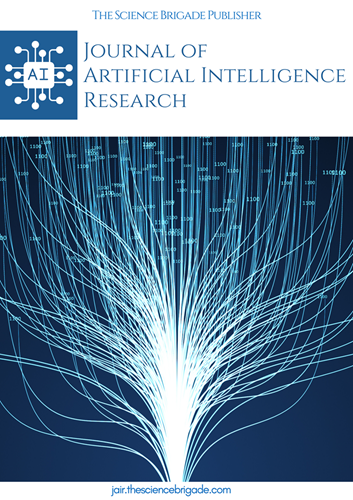Journal Name: Journal of Artificial Intelligence Research (JAIR)
Impact Factor: 4.6 (By ResearchBib)
h-index: 15 (By Google Scholar)
i10-index: 22 (By Google Scholar)
Journal Initials: JAIR
Publication Mode: Digital
Frequency: Semi-Annual (2 Issues a year)
Launch Year: 2021
Review Mode: Double Blind Peer Review
Plagiarism Allowed: 10% (as per Turnitin)
Coverage: Worldwide
Language: English
About the Journal
The Journal of Artificial Intelligence Research (JAIR) is a peer-reviewed, open-access journal dedicated to publishing original research articles, reviews, and short communications across all domains of artificial intelligence. JAIR welcomes submissions from researchers globally, embracing diverse perspectives and methodologies.
Journal Snapshot
- Journal Name: Journal of Artificial Intelligence Research (JAIR)
- Impact Factor: 4.6
- h-index: 15 (By Google Scholar)
- i10-index: 22 (By Google Scholar)
- Journal Initials: JAIR
- Research Scope: Artificial Intelligence, Machine Learning, Natural Language Processing, Computer Vision, Robotics, Knowledge Representation, Automated Reasoning, AI Applications
- Publication Mode: Digital (On this Website) & Print Copies (Add-On)
- Frequency: Semi-Annual (2 Issues a year)
- Launch Year: 2021
- Review Mode: Double Blind Peer Review
- Plagiarism Allowed: 10% (as per Turnitin)
- Coverage: Worldwide
- Language: English
Announcements
Current Issue

Welcome to Volume 5, Issue 1 of the Journal of Artificial Intelligence Research (JAIR). This edition delves into diverse facets of artificial intelligence, presenting a collection of seminal papers at the forefront of AI research. "Explainable AI" navigates the challenges and opportunities in developing transparent decision-making systems, shedding light on the imperative of explainability in AI. Concurrently, "Knowledge Representation and Reasoning in AI" delves into various approaches to knowledge representation and reasoning, illuminating pathways towards enhanced cognitive capabilities in AI systems. Additionally, "Multi Agent Systems" explores coordination and cooperation mechanisms in multi-agent systems, offering insights into achieving collective goals efficiently through distributed intelligence. Lastly, "Natural Language Understanding in AI" investigates techniques and algorithms for natural language understanding, advancing the frontiers of human-computer interaction and intelligent communication. Join us as we delve into the complexities and advancements of artificial intelligence, shaping the future of intelligent systems and decision-making processes.



